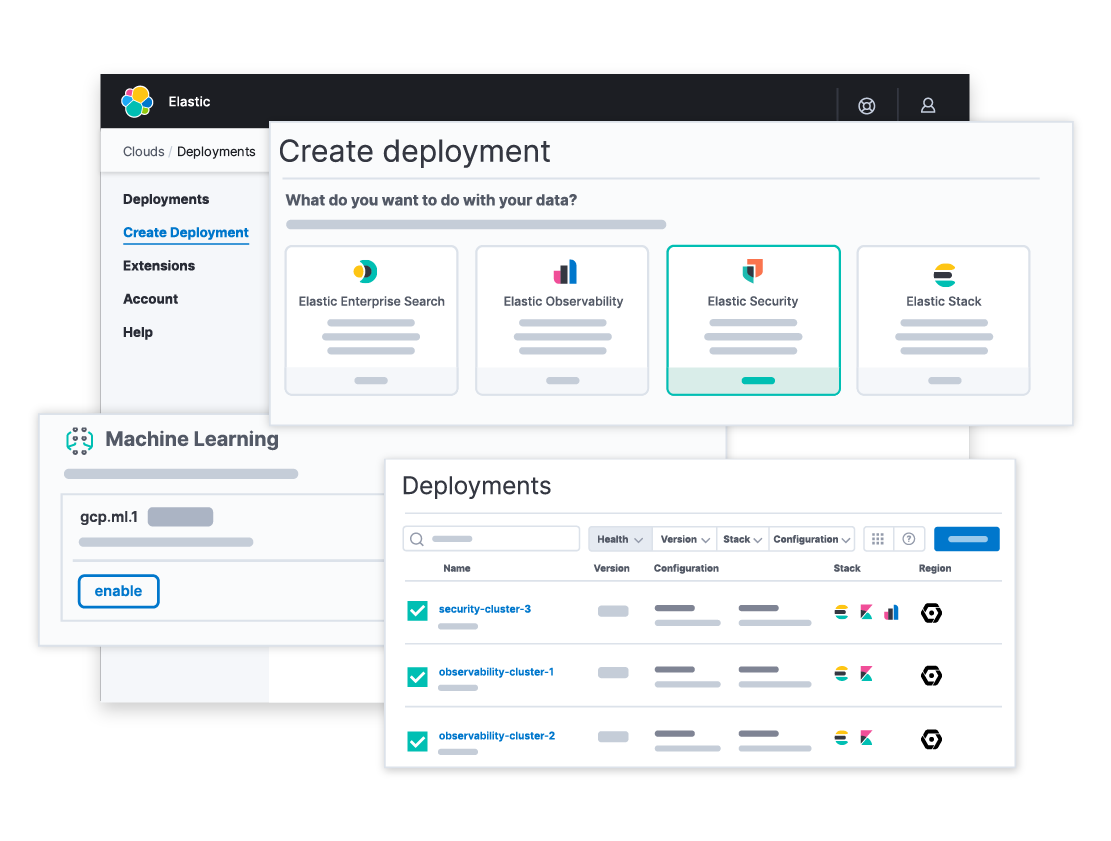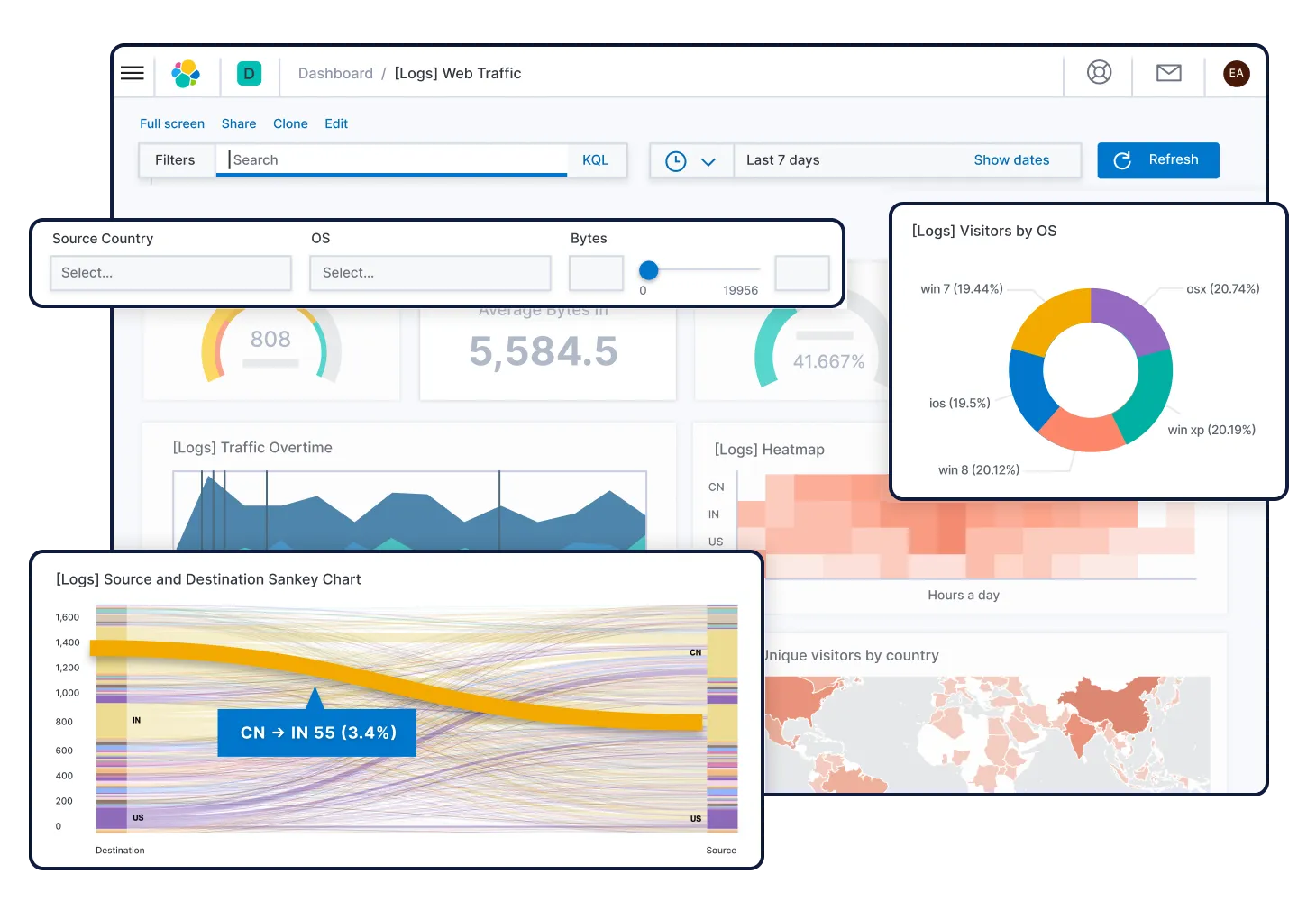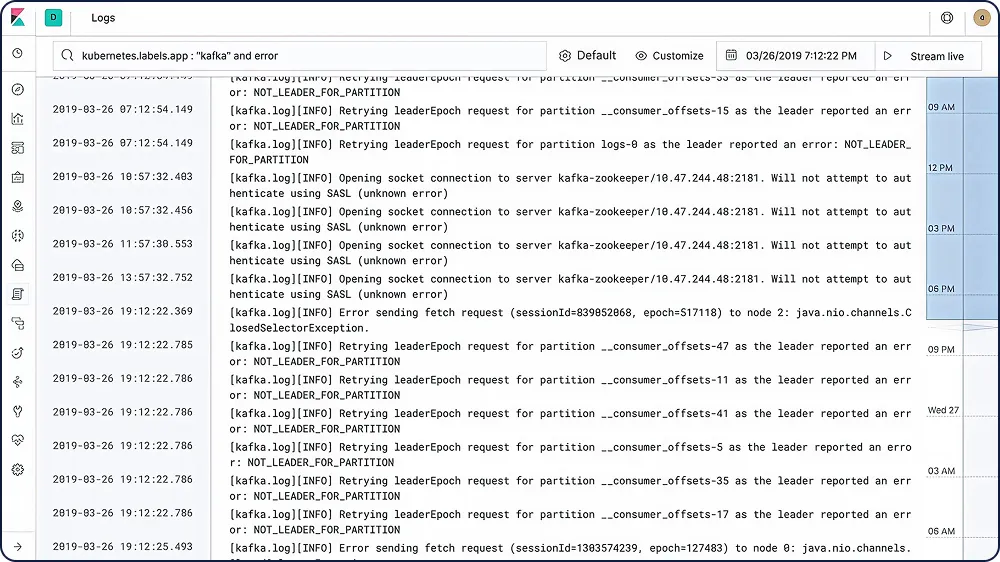
Elastic Stack
Meet the search platform that helps you search, solve, and succeed
It's comprised of Elasticsearch, Kibana, Beats, and Logstash (also known as the ELK Stack) and more. Reliably and securely take data from any source, in any format, then search, analyze, and visualize.
Lay a strong foundation for working with Elasticsearch in our Elasticsearch Engineer training.
View courseReady for Elastic Stack? Learn best practices for upgrading without downtime.
Watch videoLearn pro tips for upgrading the Elastic Stack to get value from new features in each release.
Watch videoElasticsearch + Kibana + Integrations
Combining search-powered products and features
Built on an open source foundation, Elasticsearch and Kibana pave the way for diverse use cases that start with logging and span as far as your imagination takes you. Elastic features like machine learning, security, and reporting compound that value — and since they’re made for Elastic, you'll only find them from us. See a full list of Elastic Stack features.
Elasticsearch
Elasticsearch is a distributed, JSON-based search and analytics engine.
Kibana
Kibana gives shape to your data and is the extensible user interface.
Integrations
Integrations enable you to collect and connect your data with the Elastic Stack.
Solving for X, Fast
Elasticsearch
Whether you're looking for actions from a specific IP address, analyzing a spike in transaction requests, or hunting for a taco spot in a one-mile radius, the problems we're all trying to solve with data boil down to search. Elasticsearch lets you store, search, and analyze with speed at scale.

Engaging in Real Time
Kibana
Start exploring your data with stunning visualizations in Kibana, from waffle charts and heatmaps to time series analysis and beyond. Use preconfigured dashboards for your diverse data sources, create live presentations to highlight KPIs, and manage your deployment in a single UI.

Ingest from any source
Integrations
Surface valuable insights when you collect, store, search, and analyze your data. Using capabilities like Elastic Agent, Beats, or the web crawler, ingest data from applications, infrastructure, and public content sources with a multitude of out-of-the-box integrations to get started in minutes.

Distribution
Deploy your way
Wherever your search takes you, we'll be there.
Elastic Cloud
Deploy hosted Elasticsearch and Kibana on AWS, Google Cloud, and Azure
Spin up a fully loaded deployment on the cloud provider you choose. As the company behind Elasticsearch, we bring our features and support to your Elastic clusters in the cloud.
On-Prem
Download Elastic products
Grab a fresh installation and start running Elastic products on your machine in a few steps.
What Will You Discover?
Combining search-powered products and features
The Elastic Stack powers the search for life on Mars, helps folks find their dream home by zooming and filtering on a map, and equips security teams to prevent damaging cyber incidents. The Elastic Stack welcomes all data types; we’re big fans of curious minds.
Simple things should be simple, so we’ve also built solutions that streamline your experience for a variety of popular applications.
